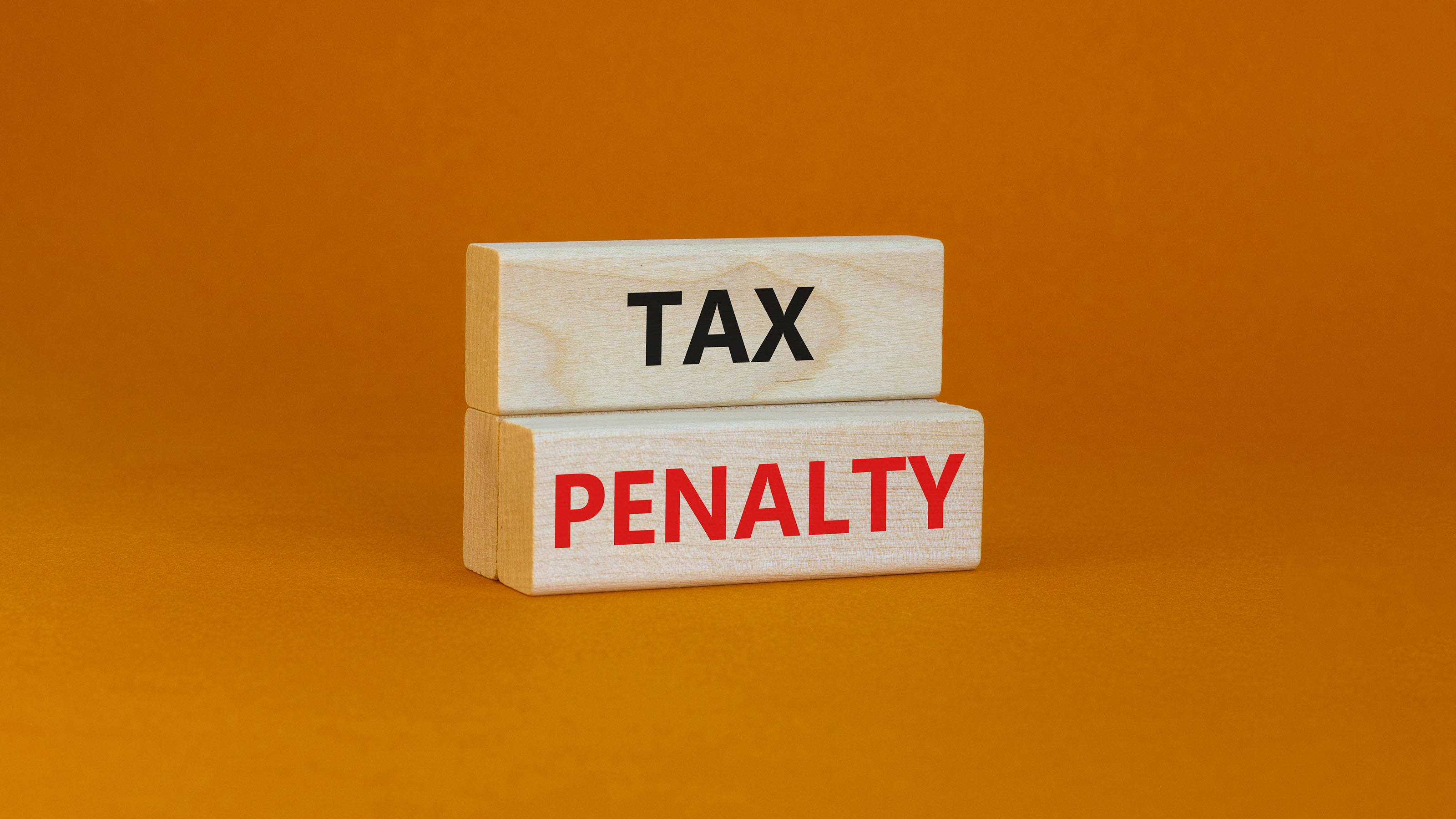Stimulus Check Smackdown: HEALS Act vs. HEROES Act
Which stimulus check plan will come out on top: The lean and mean HEALS Act version, or the beefy HEROES Act challenger?


Profit and prosper with the best of Kiplinger's advice on investing, taxes, retirement, personal finance and much more. Delivered daily. Enter your email in the box and click Sign Me Up.
You are now subscribed
Your newsletter sign-up was successful
Want to add more newsletters?

Delivered daily
Kiplinger Today
Profit and prosper with the best of Kiplinger's advice on investing, taxes, retirement, personal finance and much more delivered daily. Smart money moves start here.

Sent five days a week
Kiplinger A Step Ahead
Get practical help to make better financial decisions in your everyday life, from spending to savings on top deals.

Delivered daily
Kiplinger Closing Bell
Get today's biggest financial and investing headlines delivered to your inbox every day the U.S. stock market is open.

Sent twice a week
Kiplinger Adviser Intel
Financial pros across the country share best practices and fresh tactics to preserve and grow your wealth.

Delivered weekly
Kiplinger Tax Tips
Trim your federal and state tax bills with practical tax-planning and tax-cutting strategies.

Sent twice a week
Kiplinger Retirement Tips
Your twice-a-week guide to planning and enjoying a financially secure and richly rewarding retirement

Sent bimonthly.
Kiplinger Adviser Angle
Insights for advisers, wealth managers and other financial professionals.

Sent twice a week
Kiplinger Investing Weekly
Your twice-a-week roundup of promising stocks, funds, companies and industries you should consider, ones you should avoid, and why.

Sent weekly for six weeks
Kiplinger Invest for Retirement
Your step-by-step six-part series on how to invest for retirement, from devising a successful strategy to exactly which investments to choose.
Ladies and gentlemen, welcome to the U.S. Capitol in Washington, D.C., for the summer's main event – an epic heavyweight battle between two competing stimulus check plans. This much anticipated match-up will decide how much money you're going to get if the federal government mails out a second round of economic stimulus payments. This is the battle America has been waiting for!
It's time to introduce the opposing proposals. In the red corner, weighing in at a scrappy $306 billion (estimate) from the Senate Republicans, we have the HEALS Act plan. It's the closest in form and amount to the reigning champion of stimulus checks – the CARES Act payments. In the blue corner, weighing in at a hefty $413 billion (estimate) from the House Democrats, we have the HEROES Act plan. It goes well beyond the CARES Act in several respects, especially when it comes to extra payments for dependents and eligibility requirements.
As the Congressional leaders come to the center of the ring for instructions, let's remind the viewers at home that this is a political fight. So, headbutts, eye gouging and hitting below the belt are to be expected. But before the brawl begins in full force, let's run down the "tale of the tape" for each of these plans so you can see how the two proposals stack up against each other in five important categories.

Amount of Payment
Let's go directly to the most important factor for most Americans: Which plan will pay you the most money?
If you don't have children or other dependents (such as elderly parents living with you), the HEALS Act and HEROES Act stimulus check plans are even. They both offer $1,200 base payments for single people, or $2,400 for married couples filing a joint return. In addition, both plans phase-out payments for higher-income people on essentially the same schedule (there is a slight difference for people who receive foreign earned income or income from a U.S. territory). If you're single, married but filing a separate tax return, or a qualifying widow(er), the phase-out kicks in if your adjusted gross income (AGI) is above $75,000. If you're a head-of-household filer, the AGI threshold is $112,500. If you're married filing a joint tax return, it's $150,000.
However, for people with dependents, the HEROES Act has a big advantage in most cases. That's because the extra payment for each dependent under the HEROES Act is a whopping $1,200. Compare that to the modest $500-per-dependent payment offered under the HEALS Act, and you can see why the HEROES Act comes out on top for the majority of families. (The CARES Act paid $500 for each child age 16 or younger.)
The HEALS Act is better than the HEROES Act for one group, though. Really big families – we're talking families with eight or more children/dependents – would get more money under the HEALS Act. This is because the HEROES Act limits the amount of extra payments for dependents to $3,600 (i.e., for three dependents), while the HEALS Act doesn't include a limit. So, for example, if you have eight kids, you can get an extra $4,000. If you have nine kids, that's an additional $4,500 in your pocket. With 10 kids…well, you get the point. With the HEROES Act, no matter how many children you have, you'll never get more than $3,600 in additional payments.

Eligibility for Payment
Who will actually get a second stimulus check? That's another important question. Once again, the HEROES Act offers more than the HEALS Act in terms of spreading the wealth.
Both plans would deny payments to:
- Nonresident aliens (i.e., someone who isn't U.S. citizen, doesn't have a green card, and isn't physically present in the U.S. for the required amount of time);
- Anyone who can be claimed as a dependent on someone else's return (although the person claiming them as a dependent would get an additional payment); and
- Estates and trust.
The HEALS Act proposal would add people in prison or jail, people who died before 2020, and people who don't have a Social Security number to the list. Generally, no stimulus checks for them.
The HEROES Act, on the other hand, says nothing about incarcerated or dead people. So, unless the IRS asks that payments to prisoners be returned (as they did with CARES Act payments), then it may be safe to assume that they would qualify for stimulus checks under the HEROES Act. Likewise, for payments to deceased people, it seems as if they might not have to be return if they're accidently sent out (the IRS also asked for these payments to be return after the CARES Act).
People without a Social Security number would still get a stimulus check under the HEROES Act if they have a Taxpayer Identification Number (TIN). By allowing TINs instead of a Social Security number, the HEROES Act would allow certain people who are not U.S. citizens and who can't get a Social Security Number to receive a stimulus payment.

Method of Payment
When it comes to the authorized methods of sending out stimulus check payments, the HEALS Act has the upper hand. Both the HEALS Act and the HEROES Act allow the IRS to send out paper checks or electronically deposit payments directly into a bank account that you provided after 2017 for purposes of receiving a tax refund. So, for example, if you filed your 2019 tax return earlier this year and asked the IRS to directly deposit your refund into your bank account, the IRS can drop your stimulus check into that same account.
The HEROES Act doesn't authorize any other methods of payment. So, if you didn't get a refund on your 2018 or 2019 tax return, or you didn't ask for direct deposit if you did get one, then you would get a paper check in the mail for your second stimulus payment.
On the other hand, the HEALS Act allows two additional methods of payment. First, it authorizes the IRS to electronically deposit your second-round stimulus payment into a bank account that you used after 2017 to make tax payments. So, for example, if you owed tax last year and paid the amount electronically from your bank account when you filed your tax return, the IRS could directly deposit your second stimulus check into that account. The same rules would apply if you made electronic estimated tax payments from your account.
The HEALS Act would also permit payment to a Direct Express debit card account, a U.S. Debit Card account, or other Treasury-sponsored account. (The IRS did eventually mail out debit cards for first-round payments.)

Reduction or Offset of Payment
Being eligible for a second stimulus check is one thing. Getting the full amount is another. Both the HEALS Act and the HEROES Act would prevent the reduction or offset of stimulus payments to pay back taxes or other debts owed to the federal or a state government. Payments would not be subject to garnishment by creditors or debt collectors, either. They also would not be lost in bankruptcy proceedings.
However, when it comes to the IRS holding back stimulus check money to pay child support arrears, the two plans go in different directions. Under the HEALS Act, if you owe child support, the IRS would be allowed to take some or all your second-round stimulus check to pay arrears (as it could with first-round checks). That wouldn't be permitted under the HEROES Act.
How you feel about the two plans on this point probably depends on which side of the fence you're on. If you owe child support, the HEROES Act helps you. However, if you're receiving the child support, you're better off with the HEALS Act.

Modification of the CARES Act
What about changes to the first round of stimulus checks? The HEALS Act and the HEROES Act both reach back to the CARES Act and make changes to the earlier law. The HEALS Act has a light touch on the CARES Act, while the HEROES Act places a heavy hand on it.
Under the HEALS Act, prisoners and dead people are retroactively made ineligible for first-round payments. First-round payments also would not be subject to garnishment going forward (although previous garnishments wouldn't be undone).
The HEREOS Act goes further and, in some cases, would actually increase the amount of your first-round payment (the IRS would have to send you the extra amount). Retroactive changes to the CARES Act included in the HEROES Act would:
- Allow the extra $500 payment for each dependent, rather than only for children below age 17;
- Allow a first-round payment without a Social Security number for people with a TIN;
- Prevent the reduction or offset of first-round payments for past-due child support; and
- Prevent garnishment of first-round payments.
Profit and prosper with the best of Kiplinger's advice on investing, taxes, retirement, personal finance and much more. Delivered daily. Enter your email in the box and click Sign Me Up.
Rocky Mengle was a Senior Tax Editor for Kiplinger from October 2018 to January 2023 with more than 20 years of experience covering federal and state tax developments. Before coming to Kiplinger, Rocky worked for Wolters Kluwer Tax & Accounting, and Kleinrock Publishing, where he provided breaking news and guidance for CPAs, tax attorneys, and other tax professionals. He has also been quoted as an expert by USA Today, Forbes, U.S. News & World Report, Reuters, Accounting Today, and other media outlets. Rocky holds a law degree from the University of Connecticut and a B.A. in History from Salisbury University.
-
 How Much It Costs to Host a Super Bowl Party in 2026
How Much It Costs to Host a Super Bowl Party in 2026Hosting a Super Bowl party in 2026 could cost you. Here's a breakdown of food, drink and entertainment costs — plus ways to save.
-
 3 Reasons to Use a 5-Year CD As You Approach Retirement
3 Reasons to Use a 5-Year CD As You Approach RetirementA five-year CD can help you reach other milestones as you approach retirement.
-
 Your Adult Kids Are Doing Fine. Is It Time To Spend Some of Their Inheritance?
Your Adult Kids Are Doing Fine. Is It Time To Spend Some of Their Inheritance?If your kids are successful, do they need an inheritance? Ask yourself these four questions before passing down another dollar.
-
 States That Tax Social Security Benefits in 2026
States That Tax Social Security Benefits in 2026Retirement Tax Not all retirees who live in states that tax Social Security benefits have to pay state income taxes. Will your benefits be taxed?
-
 Ten States with the Lowest Sales Tax in 2025
Ten States with the Lowest Sales Tax in 2025Sales Tax Living in one of the lowest sales tax states doesn't always mean you'll pay less.
-
 10 Least Tax-Friendly States for Middle-Class Families
10 Least Tax-Friendly States for Middle-Class FamiliesState Tax Here’s what living in one of the least tax-friendly states for middle-class families costs residents.
-
 Low-Tax States for 'Middle-Class' Families in 2026
Low-Tax States for 'Middle-Class' Families in 2026State Tax Here are the best states for families with middle incomes (due to low tax burdens).
-
 15 States That Tax Military Retirement Pay (and Other States That Don't)
15 States That Tax Military Retirement Pay (and Other States That Don't)retirement Taxes on military retirement pay vary from state-to-state. How generous is your state when it comes to helping retired veterans at tax time?
-
 5 Tax Deadlines for October 17
5 Tax Deadlines for October 17tax deadline Many taxpayers know that October 17 is the due date for filing an extended tax return, but there are other tax deadlines on this date.
-
 Penalties for Filing Your Tax Return Late
Penalties for Filing Your Tax Return Latetax deadline Stiff penalties await those who didn't file their return (or pay any tax owed) by the tax filing deadline.
-
 9 Tax Deadlines for April 18
9 Tax Deadlines for April 18tax deadline Between requesting a tax extension, making IRA or HSA contributions, and meeting other tax deadlines, there's more to do on Tax Day than just filing your federal income tax return.

